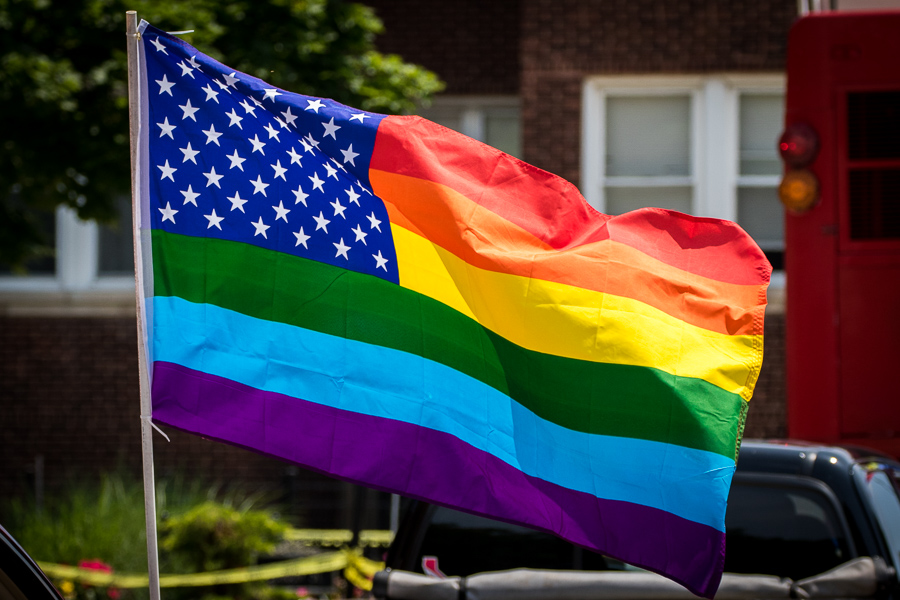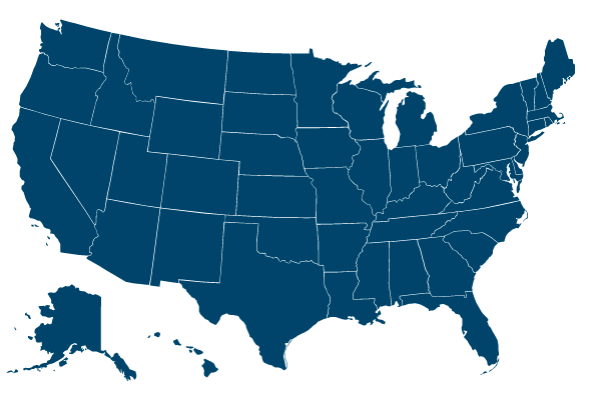The Atlantic's CityLab blog has a host:
Train stations in America span all the styles of architecture this nation has to offer. There’s the the gorgeous Italianate train station in Jackson, Michigan. The Amtrak station in Raton, New Mexico, is a beautiful example of Mission Revival. Even the humble lil’ train station in Mineola, Texas, has got some flair. Whatever you might think about Orlando’s train station, it no doubt looks historic.
The stations I want to talk about are not those train stations. These are not the Art Deco transit hubs that look like vintage monuments to the future, or the Spanish Colonial stations that summon visions of desperados waiting for a train. These are the other train stations—the ones that make you wish you’d left the house a little later so you’d have to spend that much less time waiting at the station.
Warning: truly depressing train station photos follow. And depression, according to a new meta-analysis, damages your brain. So after looking at these photos, go for a walk, and then write your member of Congress to restore funding to Amtrak.
Two by Josh Marshall this morning. First, on how Donald Trump has got the Republican National Committee chair near apoplexy:
If you're someone of [RNC chair Reince] Priebus' relative stature, approaching someone of Trump's arrogance and buffoonery, who is insulated from all of the pressures usually used to bring politicians to heel, you're not going to say, "Dude, STFU or else." I think you're probably to say something like "Dude, you're killing it. You've really struck a nerve. But a party can only handle so much of your awesomeness at once. Let's try to tone this down a bit."
The issue of course is that Trump has struck a nerve. It's not just his ability to get on TV or his (in political terms) limitless money. Trump's tirades against Mexicans have juiced his popularity among Republican primary voters, which is to say that his clown show has highlighted the fact that a lot of core Republican base voters are themselves hostile to immigrants and particularly ones from Spanish-speaking Latin American countries.
This does not detract one bit from the hypothesis that Trump is literally a clown. The more popular he becomes within the GOP, the more popcorn I reach for.
Then there's the hard-working Jeb Bush, who has hardly worked in his life and said yesterday that people need to work harder:
It goes without saying that it's probably not good politics to say your plan to move the country forward is that everyone needs to work longer hours. It approaches 47% level toxicity. Even more damning is that it makes zero sense in policy terms. Indeed, Jeb's 'work harder' prescription provides harrowing look at the level of derp that can be produced when you take a guy who isn't all that bright and push him to the head of the national leadership line without ever having put in an honest day's work or support himself in his life.
It's unclear to me whether Bush doesn't even fully understand the policies his advisors are trying to explain to him or whether this is just standard patrician work ethic morality. Whichever it is, the real structural problem in our economy is stagnant wages for more than a generation for most of the population. ... There's a decent argument that people working longer hours is the problem; it's definitely not the solution.
That sounds right. In fact, there's a good argument that a shorter work-week could help (says Forbes, Forbes I tell you!). But that doesn't fit with right-wing beliefs about working people, so as long as they have a majority in Congress, let's party like it's 1899.
Apparently Republican Maine governor Paul LePage (aka "the country's craziest governor") let "accidentally" let 19 bills become law by "forgetting" to veto them:
As the Bangor Daily News reported Tuesday evening, LePage appeared to be attempting to use the parliamentary procedure known as the pocket veto. By not signing the bills and "pocketing" them, LePage could under some circumstances have effectively vetoed them. In theory, that would have allowed the proposals to die without legislators having a chance to override his veto. But the pocket veto only works if the legislature has adjourned after the end of the second regular session. And there is the rub.
The clerk of the Maine House told TPM Wednesday morning that the legislature, which is nearing the end of the first regular session, has not adjourned. By not vetoing the bills within the required 10-day period, LePage allowed the bills he opposed -- some ferociously -- to become law.
Given that Maine is majority-Democratic, and LePage has deviated somewhat from his campaign persona by becoming a raging right-wing nutter, it seems possible to me that he allowed the bills to become law so (a) he could continue to grandstand on the issues without (b) actually signing bills he knew were pretty good for Maine.
But the actual reason this happened is most likely the omnibus explanation: stupidity.
Sometimes your opponent's own-goals are sweet indeed.
Remy Porter at The Daily WTF points out the implementation issues with marriage equality:
In a landmark decision, the United States Supreme Court revised the business requirements and integrity constraints on the marriage relationship, removing some legacy constraints and essentially updating to better reflect the actual needs of their end users. This policy decision now has to be implemented in every state, county, town and hamlet across the country. Every change breaks somebody’s workflow, and this one is no exception.
In the end, this might not be changing requirements, as much as it might be poor assumptions. We’ve all seen articles like Falsehoods Programmers Believe About Time and Falsehoods Programmers Believe About Names. The choices we make in writing software can reveal our own assumptions and biases, and it behooves us in the industry to keep that in mind when interpreting business requirements. @qntm explores that idea from a database design perspective, both before the Supreme Court’s decision, and after.
Porter's post got me thinking about data design for marriage licenses, and the bad designs I've had to implement because of politics.
The Chicago Pride Parade staging area is at the end of my street, so Parker and I had to at least see it. Money shot:

That's the Stanley Cup, back in Chicago where it belongs.

And just think of the hundreds of couples breaking up this weekend:
"Honey! We can get married now!"
"...um..."
Oh, shit.
Tomorrow will be the most epic Pride Parade in Chicago's history.
It starts four blocks from my house, and the staging area extends down Montrose past the end of my street.
Good thing I'm not going to be exhausted from having a party tonight, or have anywhere to go tomorrow morning...
On the other hand, this is the coolest map I've seen in a long time:
States where Same-Sex Marriage is Legal
Updated 26 June 2015

Know hope.
A few minutes ago, the U.S. Supreme Court announced their 5-4 decision in Obergefell v Hodges:
Held: The Fourteenth Amendment requires a State to license a marriage
between two people of the same sex and to recognize a marriage
between two people of the same sex when their marriage was lawfully
licensed and performed out-of-State.
The entire U.S. is now a marriage-equality jurisdiction. The ruling will take effect in just a couple of weeks, when the Court issues its mandates.
I'm glad this happened in my lifetime. This is great news for all couples, not just same-sex couples.
It'll take a while to digest the opinion and its four dissents (and you'll never guess who dissented).
A Facebook friend complained this morning that some of her friends had changed their profile photos to the Confederate battle flag, supporting what, no one seemed to know. My response:
It's interesting. We're the only country in the developed world where it's all right for a sizable number of regional governments to put up monuments to a rebellion we put down 150 years ago at a cost of 750,000 lives. Keep in mind, these rebels expressly took up arms to defend one of the two worst atrocities ever committed by an elected government in history. In the country that committed the *worst* atrocity in history, it's a *crime* to display the symbols of the political party that perpetrated it.
Let's follow England's example and mock rebel leaders with effigies and fireworks once a year. They have Guy Fawkes; we have Nathan Bedford Forrest. Except Fawkes was delusional and totally failed in his rebellion, while Forrest knew exactly what he was doing and killed hundreds of thousands of Americans before someone stopped him from doing it. If you think about it, no organization in history is responsible for more American deaths than the so-called Confederate States of America.
I don't know why we're even having this debate. The rebels failed, and slavery with them. And yet they have persisted for another 150 years trying to claw back as much racial inequality as they can. Enough.
TPM is doing a mitzvah in its coverage of the decline of Confederate memorabilia. Three articles published today:
Send to Kindle...
The Republican Governor of South Carolina today ordered the removal of the Confederate battle flag from the state capitol. Josh Marshall lauds the (overdue) move:
[I]t is important to note that the incorporation of the Confederate battle flag into Southern state flags and flying it at capitol buildings isn't some relic of the post-Civil War days. It's quite new. In most cases it goes back a little over 50 years to the 1950s and early 1960s. In other words, the prominent public display of the flag (if not the popularity of the flag itself, though partly that too) doesn't commemorate the Civil War or the Confederacy, it was the emblem of the 'massive resistance' movement of the 1950s and 1960s in which white Southern state government sought to defy the federal government's effort to force desegration, black enfranchisement and formal legal and political equality for African-Americans on the South.
So why did [Sunday's] massacre, horrific as it is, lead - apparently - to the complete collapse of support for flying the Confederate battle flag? It's certainly not that Southern state governments are less conservative or Republican than they were 10 or 15 years ago. Far from it. And more specifically and relevantly, nor are they more progressive on race issues than a decade a more ago. So why? At a basic level, I'm not totally sure, thus my surprise. At some level, of course, it is the sheer horror of Dylann Roof's crime, his totally unambiguous motivation and his open use of the flag's symbolism. There's also a herd affect. Once Nicki Haley decided it was time to bring down the flag it probably became much, much harder for comparable leaders in other states to hold out. But neither explanation, to my mind, really captures the sea change. The best explanation I can think of is one David Kurtz suggested, which is generational. A lot of people who were alive and politically active are no longer with us. And it certainly stands to reason that that generational cohort would have been the staunchest in its resistance to the change.
The United States put down the pro-slavery rebellion 150 years ago at the cost of 3 million American lives. I'm glad the South is finally taking a small step towards adulthood.